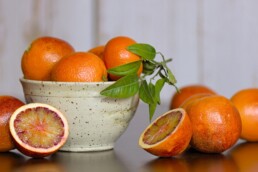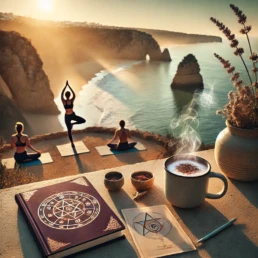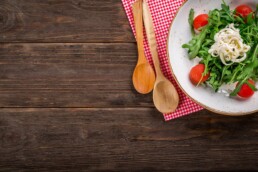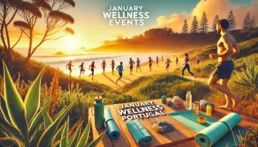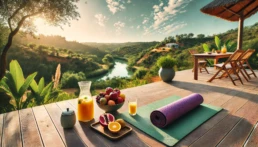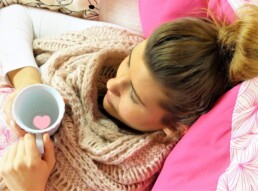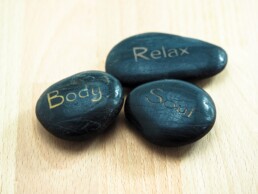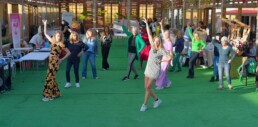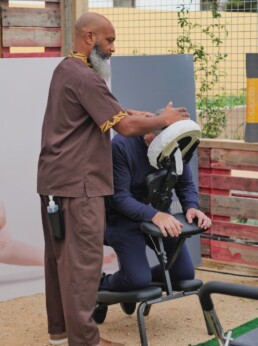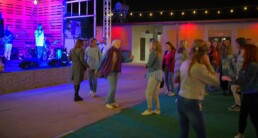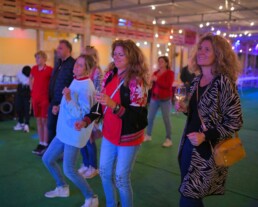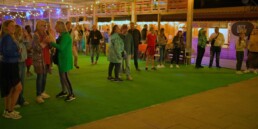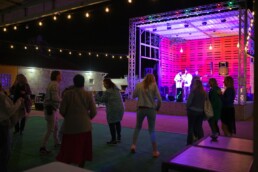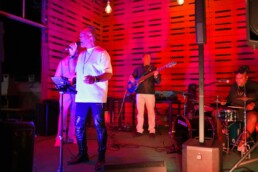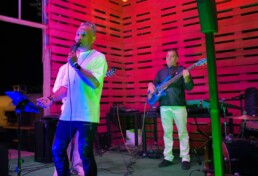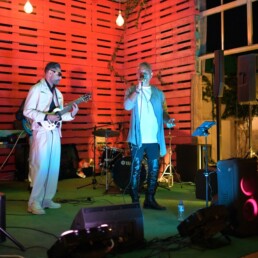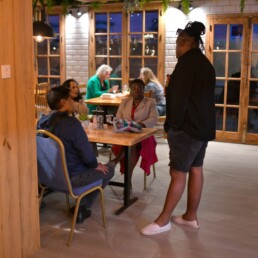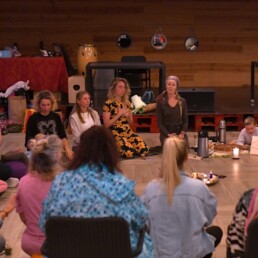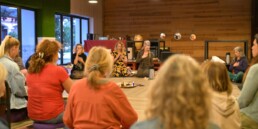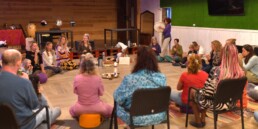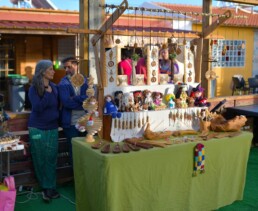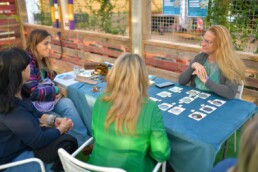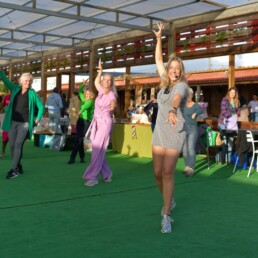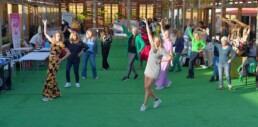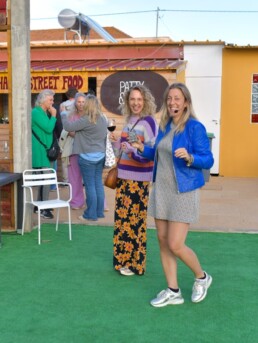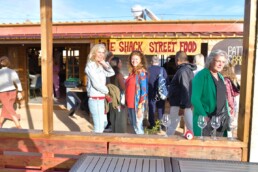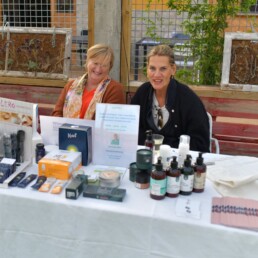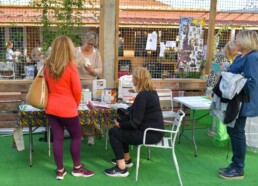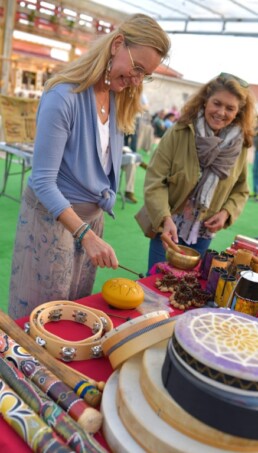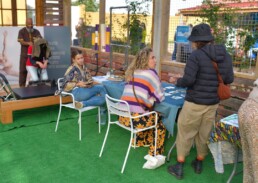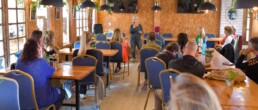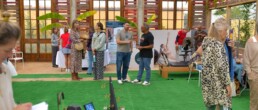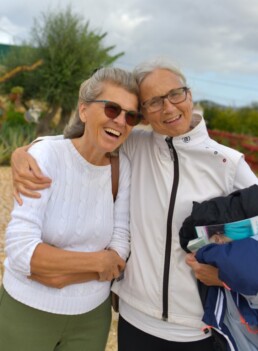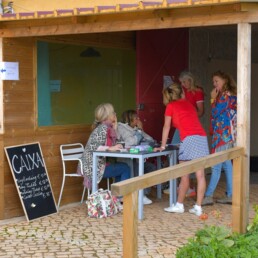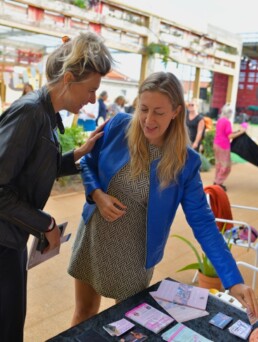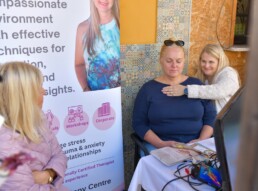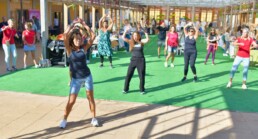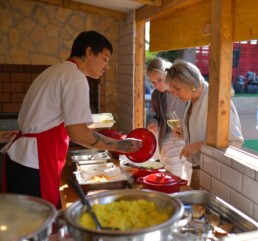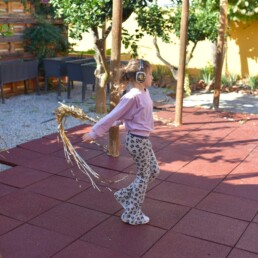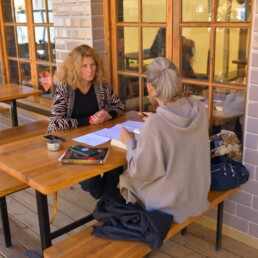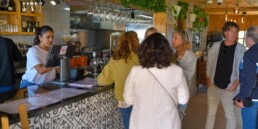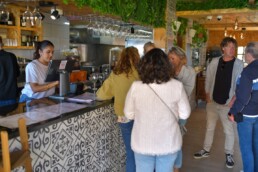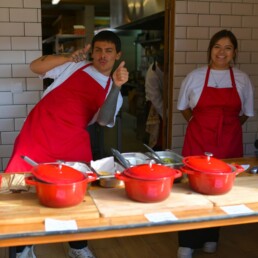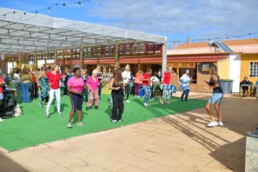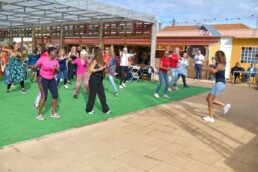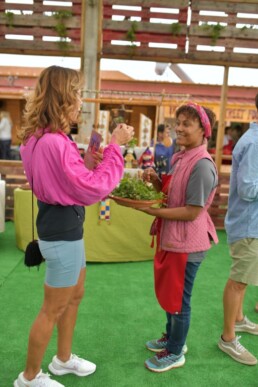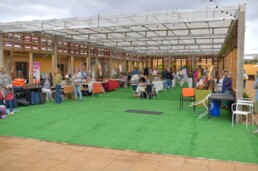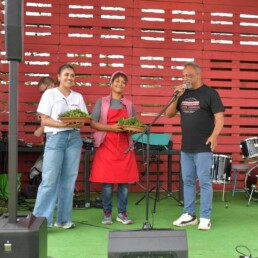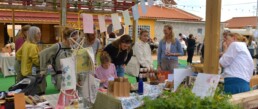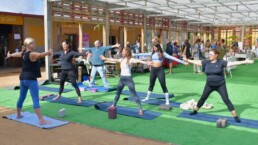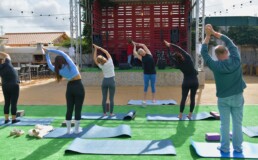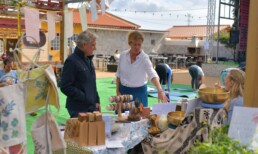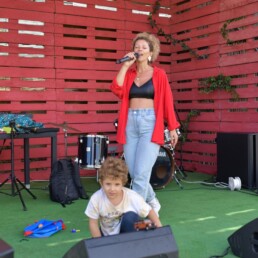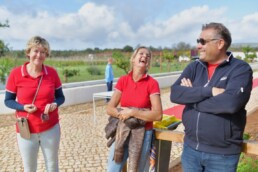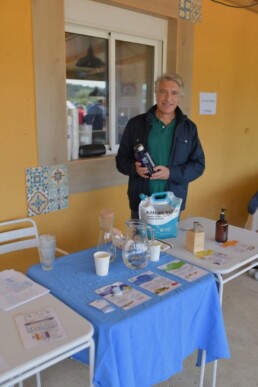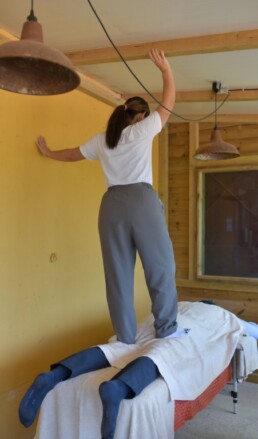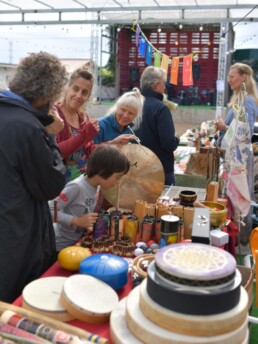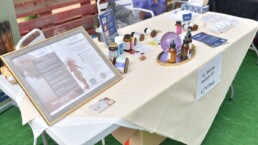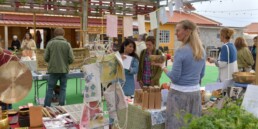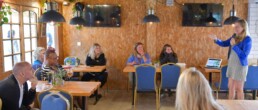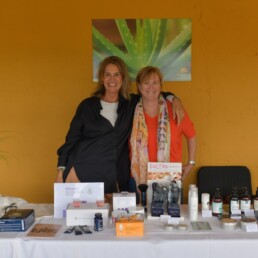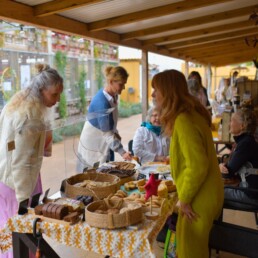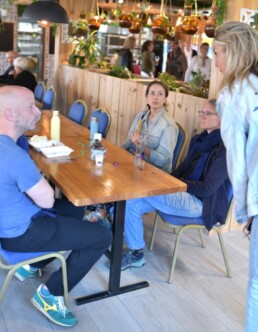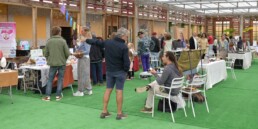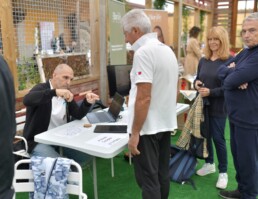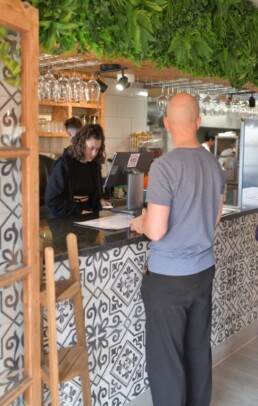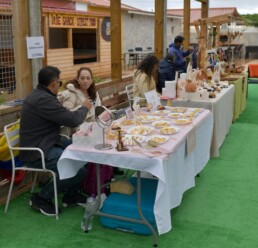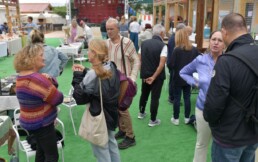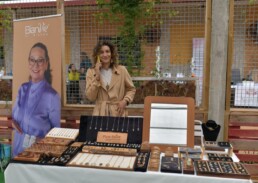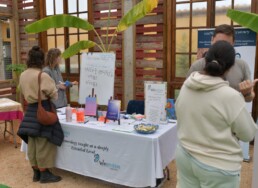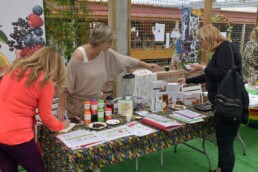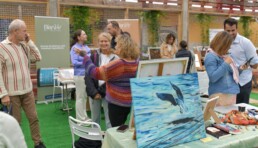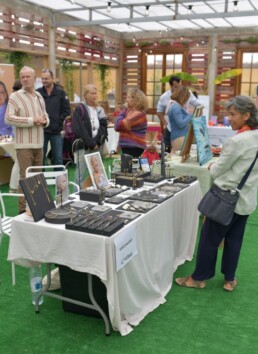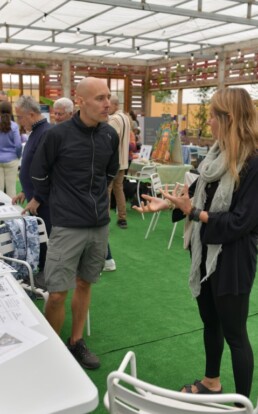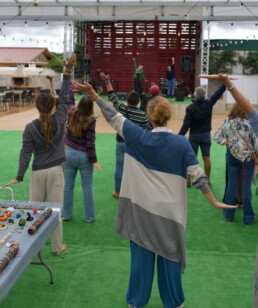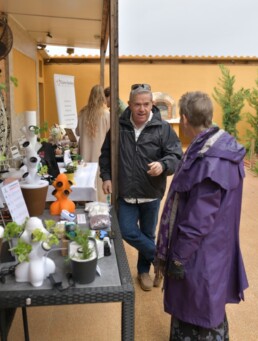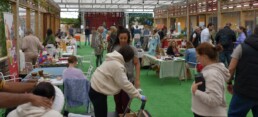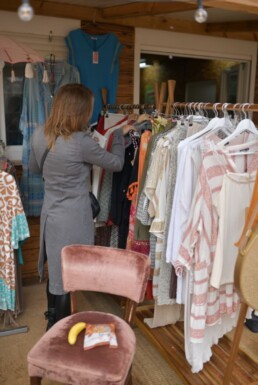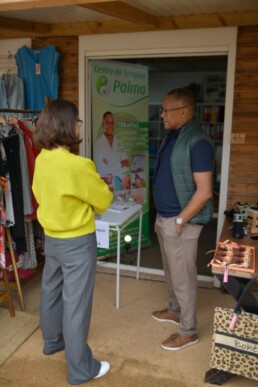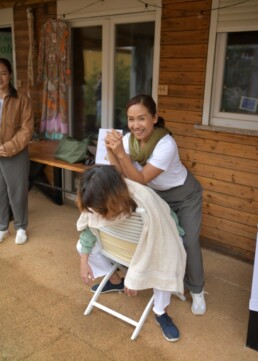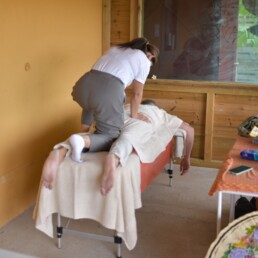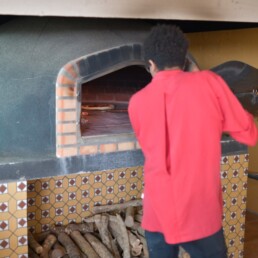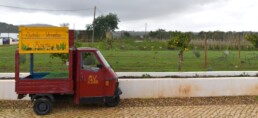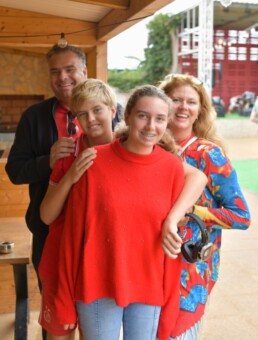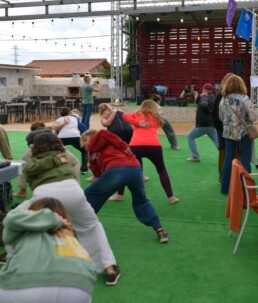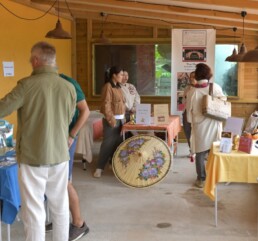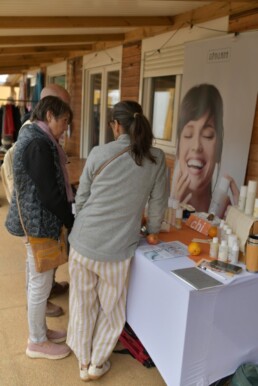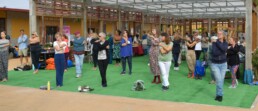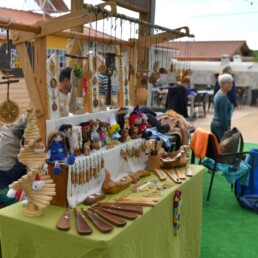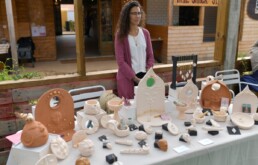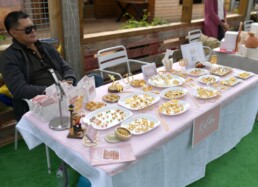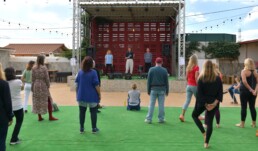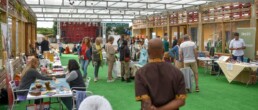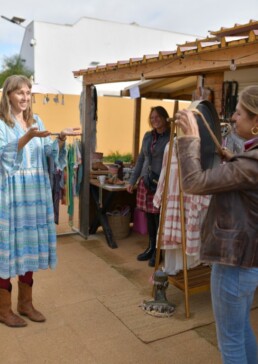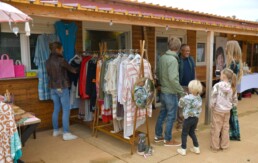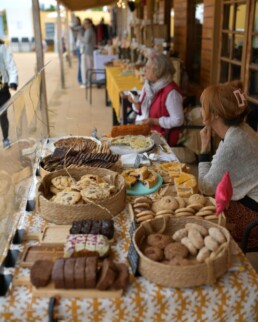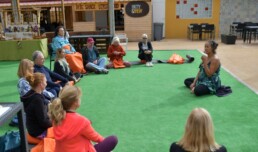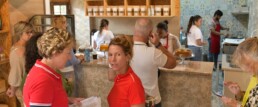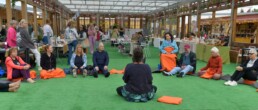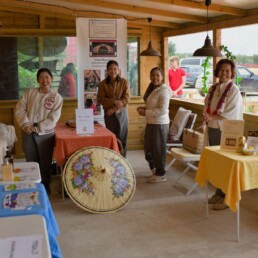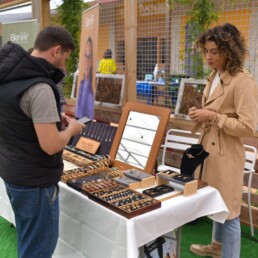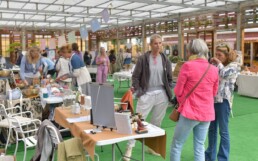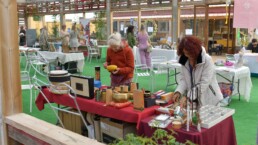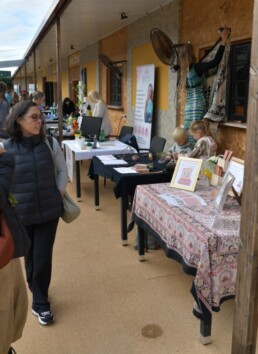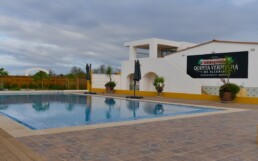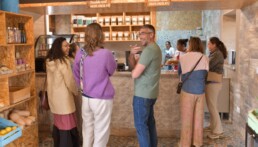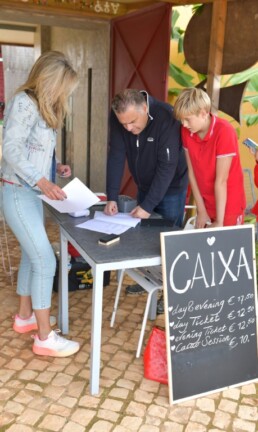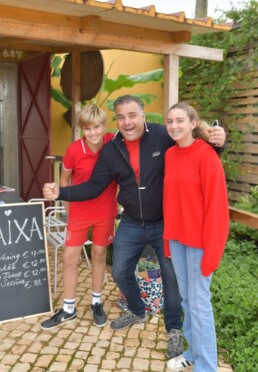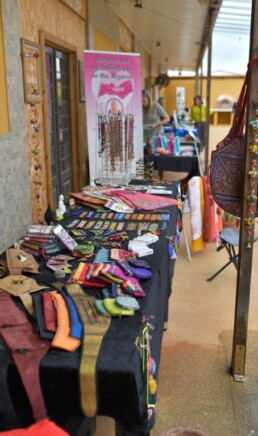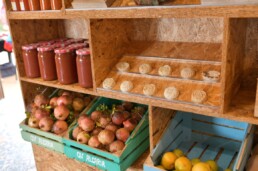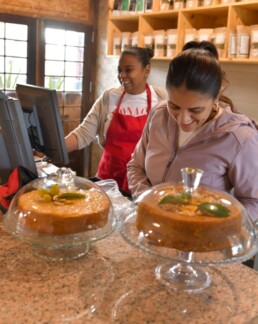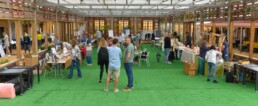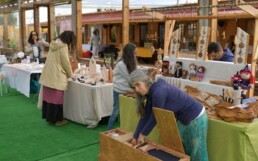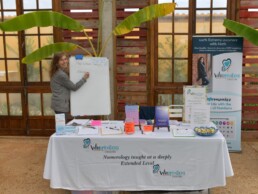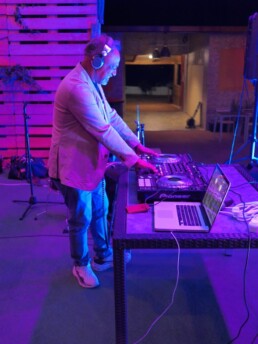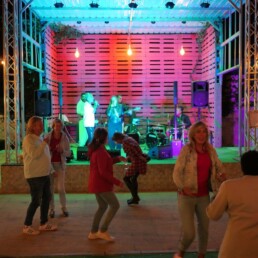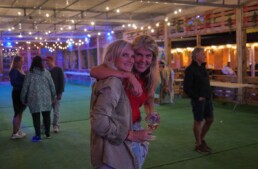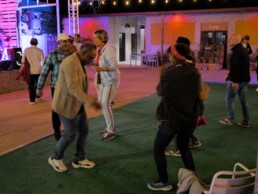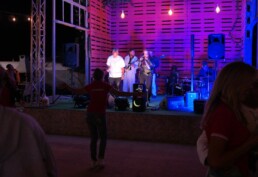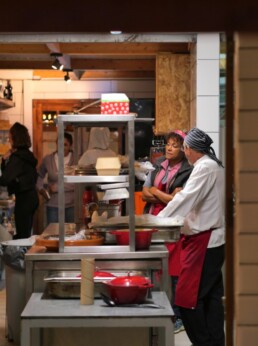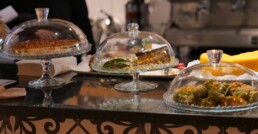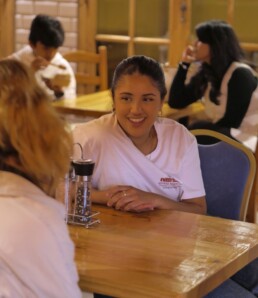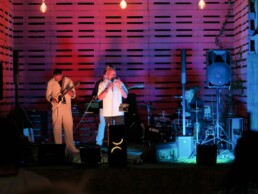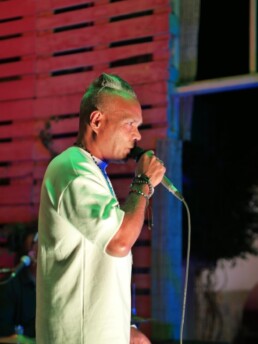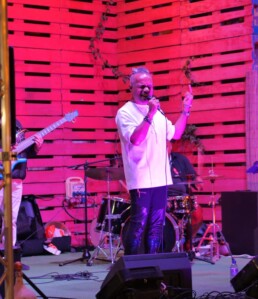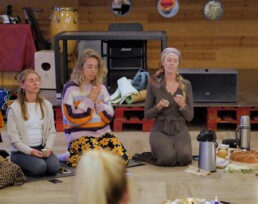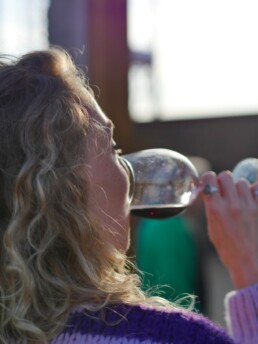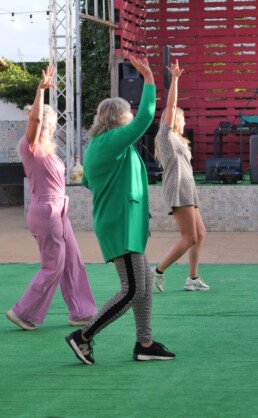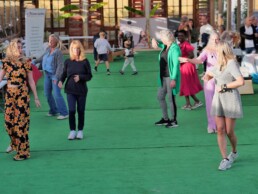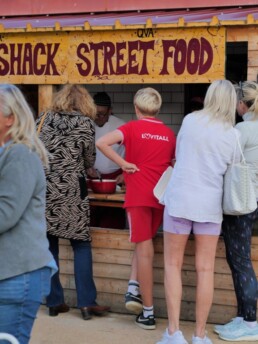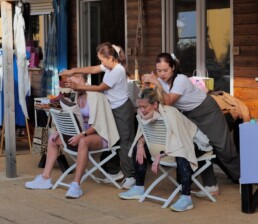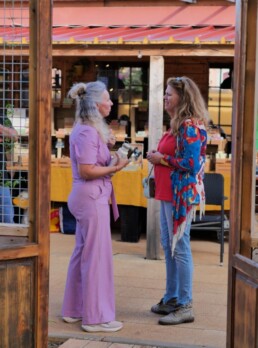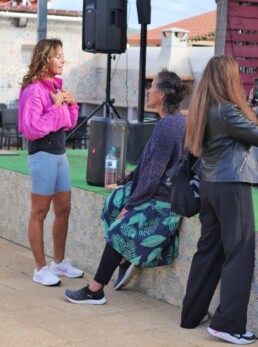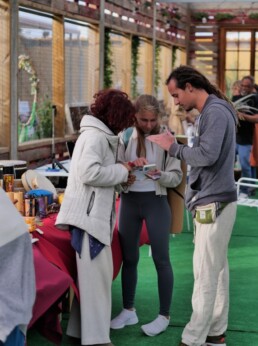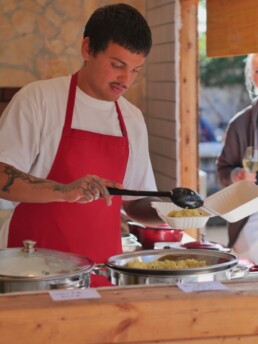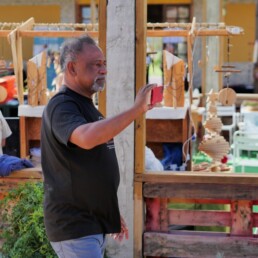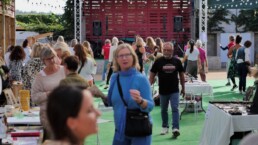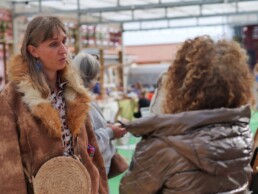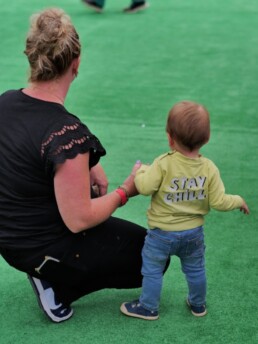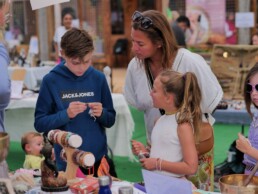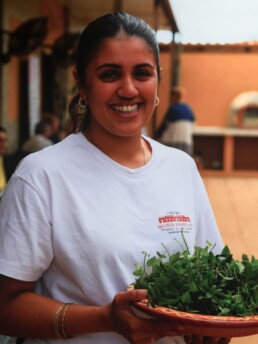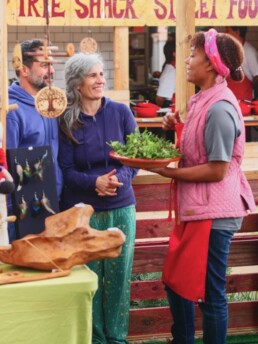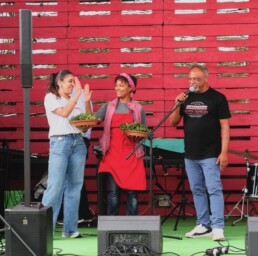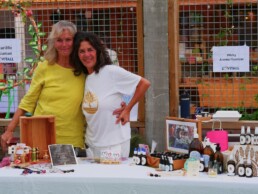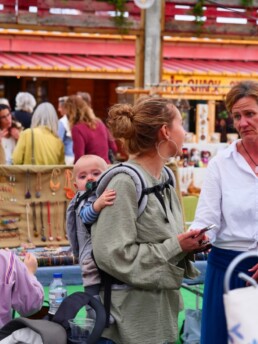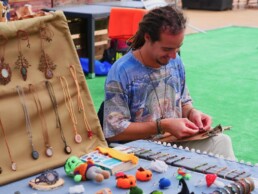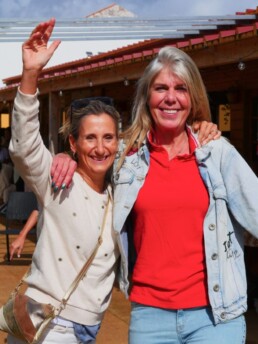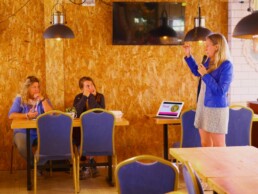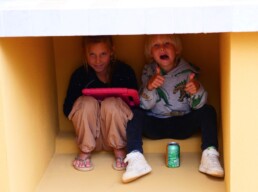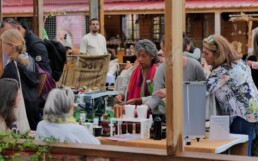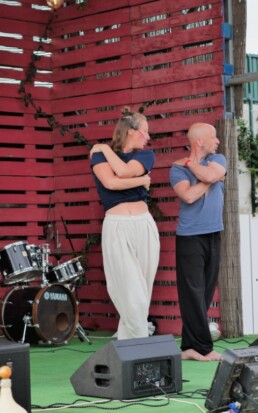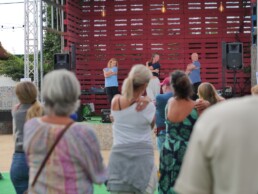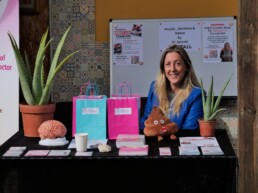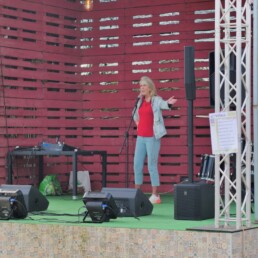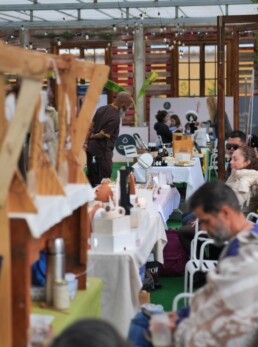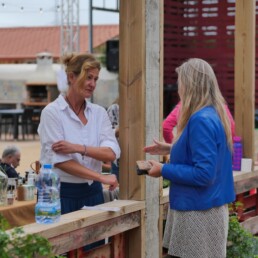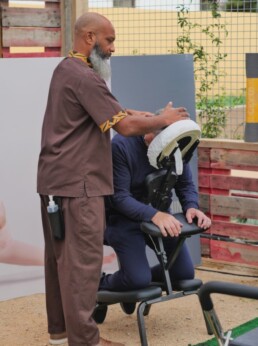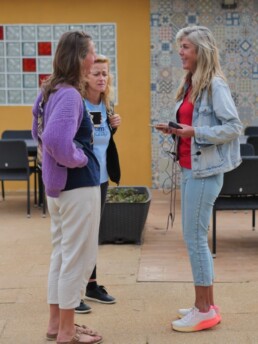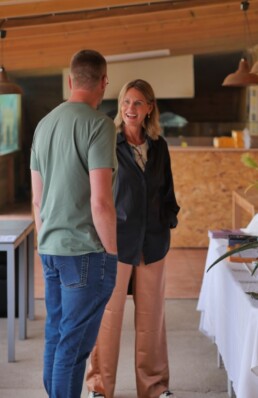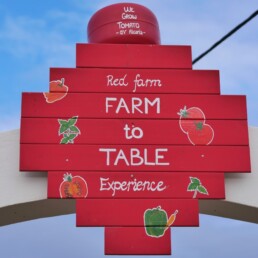Winter Tips for a Healthier Season: Boost Your Mental and Physical Wellbeing
Winter often gets a bad rap, associated with colds, flu, and long, dreary days. But did you know that cold exposure and proper nutrition can actually improve your health and wellbeing during the colder months? Here's how you can take advantage of the season to boost your mental and physical health.
Cold Exposure: Surprising Mental Health Benefits
While cold weather might make you want to stay wrapped up indoors, brief exposure to colder temperatures can have surprising benefits for your mental health.
1. Boosts Mood and Reduces Stress
Cold exposure, such as a chilly walk outside or a cold shower, has been shown to trigger the release of endorphins, the body's natural mood lifters. These "feel-good" hormones can help alleviate the winter blues, leaving you feeling happier and more energized.
2. Improves Mental Clarity and Focus
When your body is exposed to cold, your sympathetic nervous system kicks in, increasing blood flow and heart rate. This response can sharpen your focus and help clear mental fog, giving you the clarity you need to power through your day.
The Importance of Vitamin D in Winter
During the winter months, our exposure to sunlight is limited, which means our bodies may not produce enough vitamin D. This vital nutrient is essential for a range of health benefits, and here’s why it’s particularly important in winter:
1. Boosts Immune Function
Vitamin D is crucial for immune health, helping the body fight off infections. It can lower the risk of respiratory illnesses, like colds and flu, which are more prevalent in winter. Ensuring you get enough vitamin D helps keep your immune system in top shape.
2. Supports Mood and Mental Health
Vitamin D plays a key role in regulating serotonin levels, the hormone that helps control mood. Insufficient sunlight during the winter can lead to seasonal affective disorder (SAD), but adequate vitamin D intake can help combat this, promoting better emotional balance.
3. Promotes Strong Bones and Muscles
Vitamin D is essential for the absorption of calcium, helping to maintain strong bones and muscles. With more time spent indoors, especially in colder climates, vitamin D becomes even more crucial for preventing conditions like osteoporosis.
4. Improves Cardiovascular Health
Research suggests that vitamin D may reduce the risk of cardiovascular diseases by supporting healthy blood pressure and improving heart function.
5. Increases Energy Levels
Vitamin D helps combat fatigue, a common issue during the winter months when the days are shorter. By maintaining adequate vitamin D levels, you can fight off that tired feeling and maintain your energy throughout the season.
Sources of Vitamin D
Since getting enough sunlight in winter is challenging, consider adding vitamin D-rich foods like fatty fish, fortified dairy products, and eggs to your diet. Supplements may also be an option if needed, but it's best to consult with a healthcare professional.
Why Vitamin C is Crucial in Winter
Vitamin C is another powerful nutrient that can help keep your body strong during the winter months. Known for its immune-boosting properties, vitamin C is especially helpful when colds and flu are at their peak.
1. Supports Immune Health
Vitamin C strengthens the immune system by stimulating the production of white blood cells that fight off infections. A healthy immune system is your best defense against seasonal illnesses.
2. Reduces the Severity and Duration of Colds
While vitamin C won’t prevent you from catching a cold, studies show it can reduce both the severity and the duration of cold symptoms. Boosting your vitamin C intake can help you recover faster if you do fall ill.
3. Helps with Skin Health
Cold, dry air can wreak havoc on your skin in winter, but vitamin C can help maintain its health. It promotes collagen production, which is vital for keeping your skin youthful and vibrant despite harsh conditions.
4. Acts as an Antioxidant
Vitamin C is a powerful antioxidant that helps neutralize harmful free radicals in the body. During winter, when you're more likely to encounter environmental stressors, vitamin C helps protect your cells from damage and reduces inflammation.
5. Enhances Iron Absorption
Vitamin C enhances the absorption of iron, especially from plant-based sources. This is particularly important in winter when people tend to eat fewer fresh fruits and vegetables.
Vitamin C-Rich Foods
To enjoy these benefits, make sure your diet includes plenty of vitamin C-rich foods, such as citrus fruits, berries, bell peppers, and leafy greens.
By taking care of your mental and physical health through cold exposure and proper nutrition, you can make the most of the winter season. From boosting mood to strengthening your immune system, winter doesn’t have to be a time to dread—it can be an opportunity to thrive!
This post is brought to you by Lovitall, for healthy life style in Portugal
Why Vitamin C is essential: benefits, timing, and dosage
Vitamin C, also known as ascorbic acid, is a powerhouse nutrient that plays a vital role in maintaining overall health. From boosting your immune system to improving skin health, Vitamin C is essential for your body’s well-being. But when should you take it, how much do you need, and what happens if you don’t? Let’s dive into the details.
Why is Vitamin C good for you?
Vitamin C is an essential antioxidant that protects your cells from damage caused by free radicals. Here are the key benefits:
- Supports the Immune System: It enhances white blood cell function, helping your body fight off infections more effectively.
- Promotes Collagen Production: Essential for healthy skin, strong connective tissues, and wound healing.
- Boosts Energy Levels: Vitamin C improves iron absorption, reducing fatigue caused by low iron levels.
- Reduces Inflammation: Its antioxidant properties help lower inflammation, supporting overall resilience during stress or illness.
- Shortens Cold Duration: Studies show that high doses can reduce the severity and length of colds.
When is the best time of year to take Vitamin C?
While Vitamin C is beneficial year-round, certain seasons may require extra attention:
- Winter and Flu Season: Cold weather and seasonal illnesses make this the best time to boost your immune defenses with Vitamin C.
- Allergy Season (Spring): Its anti-inflammatory properties can help reduce the impact of seasonal allergies.
- Stressful Periods: Anytime your body is under stress, such as during travel, recovery from illness, or periods of intense physical or mental effort, Vitamin C can provide added support.
How do you know if you need Vitamin C?
Signs of Vitamin C deficiency can be subtle but important to recognize:
- Frequent colds or infections
- Slow wound healing
- Dry, rough skin or premature wrinkles
- Bleeding gums or gum sensitivity
- Fatigue or low energy
- Unexplained bruising
If you notice these symptoms, increasing your Vitamin C intake might help, but consult a healthcare provider for advice tailored to your needs.
What happens if you don’t take enough Vitamin C?
A lack of Vitamin C can lead to several health problems, including:
- Weakened Immune Function: Making you more vulnerable to infections.
- Scurvy: A severe deficiency that causes fatigue, gum disease, joint pain, and poor wound healing (rare in modern diets).
- Slower Recovery: From injuries or illnesses, due to impaired collagen production and immune response.
- Iron Deficiency Anemia: Caused by poor iron absorption, leading to fatigue and weakness.
Even mild deficiencies can impact your energy levels, skin health, and overall resilience.
What are the recommended dosages of Vitamin C?
The amount of Vitamin C you need depends on your health and lifestyle:
- Daily Support: 500–1,000 mg per day is sufficient for most people to enjoy immune and antioxidant benefits.
- High-Dose Support: During colds or infections, taking up to 2,000 mg per day (the upper limit for most adults) can help reduce symptoms and speed recovery.
- Therapeutic Use: In some cases, doses above 2,000 mg are used under medical supervision, but this increases the risk of side effects like diarrhea or stomach upset.
Always consult a healthcare professional before taking high doses, especially if you have kidney problems or other medical conditions.
Vitamin C critical nutrient
Vitamin C is a critical nutrient for maintaining health, especially during times of illness, stress, or seasonal changes. It boosts your immune system, supports energy levels, and helps your body recover faster.
By paying attention to your body’s signals and taking the right amount of Vitamin C, you can improve your overall health and well-being. Whether it’s wintertime colds or springtime allergies, Vitamin C is your year-round ally for resilience and vitality.
Take charge of your health today – add Vitamin C to your daily routine and feel the difference!
Become a partner with Lovitall
Grow our healthy community together
At Lovitall, we’re not just about organizing healthy events in Portugal—we’re building a vibrant platform where health and wellness providers can connect, collaborate, and thrive. By becoming a partner, you’ll join a network dedicated to fostering well-being and offering meaningful services to a growing community.
We’re working on exciting initiatives like a WhatsApp group to connect care seekers with providers and are enhancing our website and social media to become even more interactive as we grow together.
Why Partner with Lovitall?
For just €75 per year, you’ll unlock a range of exclusive benefits:
- Monthly Partner Spotlight: Each month, we’ll showcase one of our partners, highlighting your services and contributions.
- Promotion: Be featured in our social media posts, monthly newsletter, and articles. We’ll tag, share, and promote your business regularly.
- Content Sharing: Share your blogs, videos, or updates with us, and we’ll amplify your reach by sharing them with our ever-growing audience.
- Event Discounts: Get early access to participate in our events, plus enjoy a 25% discount on all event fees.
- Organizing Discounts: Plan inspiring activities like beach walks or workshops through us and receive a 25% discount on organizing fees.
- Event Support: Whether it’s promoting or organizing your event, we excel at bringing ideas to life and driving participation.
- Exclusive Networking Opportunities: Attend partner-only networking events to connect with like-minded professionals and potential clients.
- Online Directory Listing: Be prominently featured in our online directory, making it easy for community members to find your services.
- Community Engagement: Become part of a supportive ecosystem where referrals and collaborations help grow your business.
Join the Lovitall community
At Lovitall, we believe in building more than a network—we’re creating a true system for health, well-being, and success.
Ready to unlock countless benefits for your business and make a meaningful impact in the community?
Contact Diana or Margaret today to get started:
info@lovitall.pt
Together, we can make a difference
Mental Fitness: Your Key to a Balanced Life
Mental fitness is the cornerstone of a healthy, fulfilling life. It's about more than just avoiding stress—it's about building resilience, improving focus, and maintaining emotional well-being, even in the face of challenges.
Why Mental Fitness Matters
A strong mental foundation helps you:
- Manage Stress with Confidence – Face life’s challenges without feeling overwhelmed.
- Enhance Productivity – Stay focused and energized throughout the day.
- Boost Creativity – Unlock innovative thinking for problem-solving.
- Build Stronger Relationships – Communicate and connect effectively by managing emotions.
Pillars of Mental Fitness
- Mindfulness & Meditation
Calm your mind and reduce stress with simple mindfulness practices. - Physical Activity
Regular exercise releases endorphins, improving mood and mental clarity. - Quality Sleep
Restful sleep boosts your mood, memory, and ability to concentrate. - Balanced Nutrition
A healthy diet fuels your brain, helping you stay sharp and focused. - Cognitive Challenges
Activities like puzzles, reading, or learning a new skill keep your brain active and adaptable.
Simple Steps to Boost Your Mental Fitness
- Set Goals with Purpose
Break big ambitions into manageable steps to stay motivated. - Practice Gratitude
Reflect on the positives in your life to nurture a positive mindset. - Foster Connections
Spend time with loved ones or join communities to reduce isolation. - Build Resilience
Learn strategies to adapt to and recover from life’s setbacks. - Seek Support When Needed
Professional guidance can provide tailored tools for improvement.
Leading the Way in Mental Fitness: Lovitall Partners
Mental fitness is about nurturing resilience, emotional clarity, and focus. Lovitall Partners—Jel Bouman, Diana Haen, Henrica van der Aa, and Danielle Donelly—offer transformative experiences and practices that help you achieve this balance.
Jel Bouman: Emotional Healing with Soul Travels
Jel’s Soultravels method combines visualization, meditation, and grounding techniques to help clients release past traumas and reconnect with their inner selves. These practices are key to building a stronger mental foundation.
Tip from Jel: "Visualize your ideal life daily. Engage all your senses—what does it look, feel, and sound like? This rewires your brain to focus on positivity."
Diana Steenbeek: Enneagram Coaching for Self-Awareness
Using the Enneagram, Diana (Let's Connect Couching) helps clients uncover core personality traits and thought patterns. By understanding these, you can cultivate resilience and foster personal growth—pillars of mental fitness.
Tip from Diana: "Learn your Enneagram type to identify stress triggers and respond thoughtfully instead of reacting impulsively."
Henrica van der Aa: Yoga for Mind-Body Balance
Henrica’s yoga sessions (HenricaYogaAlgarve) seamlessly blend mindfulness, movement, and breathwork. This holistic approach not only reduces stress but also enhances focus and emotional well-being.
Tip from Henrica: "Start your morning with mindful stretching and deep breathing to set a positive tone and boost mental clarity."
Danielle Donelly: Astrology and Cacao for Mental Clarity
Danielle’s unique fusion of astrology and cacao ceremonies offers clients a way to deepen self-awareness and connect with their intuition. This combination is perfect for fostering mental alignment.
Tip from Danielle: "Use cacao as a mindfulness ritual. Reflect on your intentions to guide your journey toward mental clarity."
Experiences in the Algarve to Elevate Mental Fitness
With the stunning backdrop of the Algarve, Lovitall Partners provide transformative experiences to boost your mental fitness:
- Mindfulness at Ria Formosa Natural Park: Join guided sessions in serene surroundings to enhance emotional balance.
- Enneagram Workshops: Discover your personality type with Diana Haen and build emotional resilience.
- Yoga & Visualization Retreats: Immerse yourself in practices led by Henrica and Jel to unlock your mental potential.
- Cacao & Astrology Nights: Explore Danielle’s unique sessions to deepen your understanding of yourself.
How to Begin Your Mental Fitness Journey
- Reflect on Your Needs: Identify areas where you’d like to grow—emotional clarity, focus, or resilience.
- Seek Expert Guidance: Work with Lovitall Partners for personalized support.
- Incorporate Daily Practices: Start small with mindfulness, visualization, or yoga.
- Leverage Nature: Use the Algarve’s beauty to inspire your mental fitness routine.
- Celebrate Growth: Acknowledge every step of progress, knowing mental fitness is a continuous journey.
The Algarve: Your Mental Fitness Destination
With the tranquil surroundings of the Algarve and the expertise of Lovitall Partners, you can prioritize your mental well-being and create a balanced, focused, and resilient life in 2025.
Start your mental fitness journey today and discover the power of a fit mind.
Personalized nutrition
Balance your food with personal nutrition and Lovitall Partners.
As we step into a new year, health and wellness take center stage, and one of the most transformative trends of 2024 is Personalized Nutrition. This approach goes beyond one-size-fits-all diet plans, tailoring nutrition to individual needs using cutting-edge advancements in genetic testing, microbiome research, and integrative medicine. In the Algarve, a region known for its thriving wellness community, Lovitall partners are leading the way with innovative practices and expert insights.
What is Personalized Nutrition?
Personalized nutrition focuses on optimizing your diet based on your unique genetic makeup, lifestyle, and gut health. By understanding how your body reacts to different foods, you can make choices that improve energy levels, digestion, and overall well-being. From genetic testing to microbiome analysis, this approach helps identify the ideal nutrients and dietary patterns for your body’s specific needs.
Lovitall Partners Bringing Personalized Nutrition to Life in the Algarve
Bianca Toebben: Integrative Medical Expert
Bianca Toebben offers personalized health programs that integrate the latest scientific advancements with holistic care. Through detailed consultations, she helps clients uncover the root causes of health challenges and develop tailored nutrition and detox protocols. Bianca’s approach combines precision and empathy, making the journey to wellness accessible and effective.
Tip from Bianca: "Start small. Introduce more fresh, local, and organic produce into your meals. Pay attention to how different foods make you feel and consult an expert if you want to go deeper into tailored nutrition."
Vilalara Longevity Thalassa & Medical Spa
This renowned wellness center offers genetic testing and microbiome analysis to create bespoke diet plans. Combining luxury and science, Vilalara’s programs focus on Mediterranean-inspired nutrition, emphasizing fresh, seasonal ingredients to support gut health and overall vitality.
Tip from Vilalara Experts: "Embrace the Mediterranean diet: olive oil, fresh fish, nuts, and colorful vegetables are not only delicious but also key to longevity and wellness. Pair this with mindfulness about portion sizes and meal timing."
Sandra Barenfeldt: Astrologer and Nine Star Ki Specialist
Sandra Barenfeldt combines astrology and Nine Star Ki to guide clients toward dietary and lifestyle choices aligned with their elemental energies. She believes understanding your personal energy blueprint can help balance emotional and physical health, fostering a more harmonious relationship with food.
Tip from Sandra: "Look to your elemental energy for guidance. Align your nutrition with your astrological chart or Nine Star Ki profile to create harmony and sustain vitality."
Gerdien Versluis: Advocating for Holistic Wellness
Gerdien Versluis brings a passion for nutrition and wellness through her work with Juice Plus. She emphasizes the importance of bridging nutritional gaps with whole-food-based products and integrating them into a balanced diet. Gerdien’s philosophy centers around simple, sustainable changes that make a big impact over time.
Tip from Gerdien: "Don’t underestimate the power of vitamins! A daily intake of high-quality supplements like Juice Plus can help fill nutritional gaps and support your immune system, especially during busy or stressful times."
Workshops and Activities
- Mediterranean Diet Workshops: Join sessions that teach you how to create gut-friendly, nutrient-dense meals using Algarve’s local produce.
- Elemental Nutrition Sessions: Work with Sandra Barenfeldt to explore how your elemental energy influences your dietary needs.
- One-on-One Consultations: Work with integrative health professionals like Bianca Toebben or Vilalara’s team for tailored advice based on your genetic and microbiome profiles.
Why the Algarve?
The Algarve’s rich culinary heritage and abundance of fresh, organic ingredients make it the perfect setting for exploring personalized nutrition. From vibrant markets to world-class wellness centers, the region offers unparalleled resources for achieving optimal health.
Steps to Start Your Personalized Nutrition Journey
- Listen to Your Body: Begin by tracking how different foods affect your energy, mood, and digestion.
- Consult an Expert: Work with professionals like Bianca Toebben, Sandra Barenfeldt, or Vilalara’s team to get personalized insights.
- Incorporate Local Superfoods: Make the most of the Algarve’s offerings, including olive oil, almonds, fresh fish, and citrus fruits.
- Experiment with Gut-Friendly Foods: Add fermented foods and prebiotics to your meals to support gut health.
- Focus on Balance: Personalized nutrition isn’t about restriction—it’s about finding what works best for you and enjoying the process.
With the expertise of Lovitall partners and the Algarve’s natural bounty, 2025 is the year to embrace a personalized approach to health. Start your journey today and discover the profound impact of nutrition tailored to you.
Healthy things to do in January 2025 in Portugal
Healthy things to do in January in Portugal
January is the perfect time to start the new year with a focus on health and well-being. Whether you’re looking to reconnect with yourself, stay active, or embrace new wellness practices, Portugal offers a variety of unique and inspiring activities to help you achieve your goals.
From serene workshops to energizing outdoor events, this month is packed with opportunities to nurture your body, mind, and soul. Whether you’re exploring the therapeutic power of family constellations, learning practical tools for balance and confidence, or enjoying a guided nutrition walk along the picturesque Algarve coast, there’s something for everyone.
Why Start the Year with Wellness Activities?
January is a time for fresh beginnings. It’s the ideal moment to set intentions, break free from old habits, and embrace a healthier lifestyle. These activities not only help improve your physical fitness but also offer ways to build emotional resilience, deepen self-awareness, and connect with like-minded individuals.
What’s on the Agenda?
This month, we’ve curated a list of exciting wellness-focused events happening across Portugal:
- Discover inner peace and clarity with a transformative Family Constellation Workshop.
- Re-energize your body and mind with a Fascial Maneuvers Beach Walk.
- Stay active and informed with a Sport & Nutrition Walk that combines movement with practical health tips.
- Find your balance and confidence in a hands-on workshop to handle triggers and embrace your authentic self.
Portugal’s mild winter weather provides the perfect backdrop for these activities. Whether you’re on the beach, in a tranquil workshop space, or enjoying the natural beauty of the Algarve, you’ll find inspiration and motivation to start the year strong.
Make January your month for healthy changes, meaningful connections, and personal growth. Join us in embracing wellness and living life to the fullest! 🌿
Ready to take the first step? Check out the details for each event and reserve your spot today!
6 January – Family Constellation Workshop
Explore the Power of Connection
Join Margaret Krijnen for a transformative Family Constellation Workshop and gain new insights into your relationships, patterns, and inner self.
Details:
📍 Location: House of Breath, Mexilhoeira da Carregação
🕖 Start: 19:00
💰 Price: €27,50
Start the new year with clarity and connection. Reserve your spot now!
info@lovitall.pt
18 January – Human Garage Beach Walk
Discover the Power of Fascial Maneuvers
Ready to release stress, reconnect with your body, and activate your natural self-healing? Join us for an invigorating Fascial Maneuvers Workshop on the beach!
What You’ll Experience:
Understand how fascia holds emotions and tension.
Learn techniques to release stress and boost energy.
Create a healthier routine and deepen your self-awareness.
Workshop Highlights:
- A short intro to the philosophy behind Human Garage.
- Guided positions and movements tailored to your body’s needs.
- Beach walking combined with powerful fascial exercises.
- Personal advice and coaching, all while using headsets for clear guidance.
Details:
📅 Saturday, January 18, 2025
⏰ 10:00 AM
📍 5 Quinas, Alvor Beach
💰 €15
Take a step toward better health—mind and body.
Register now:
info@lovitall.pt
Let’s walk, move, and transform together!
25 January – Sport & Nutrition Walk
due to bad weather this is moved to March 8
Boost Your Health with Movement and Knowledge
Join us for an active and inspiring morning in Portimão! This Sport & Nutrition Walk combines exercise with valuable insights into healthy living.
What to Expect:
- A refreshing walk through beautiful surroundings.
- Tips and advice on sports and nutrition to fuel your wellness journey.
- A chance to connect with like-minded individuals who share your passion for health.
Details:
📅 Thursday, January 25, 2025, moved to March 8
📍 Location: Portimão
⏰ Start: 10:00 AM
💰 Price: €15
Start your day energized and informed—don’t miss this opportunity to move, learn, and grow!
29 January – Workshop: Inner Connection, Confidence & Balance
Embrace Your True Self
Ever been asked, “What do you even do all day?” or faced unwanted advice about your choices? Even with confidence, it’s normal to feel doubt or discomfort. This workshop is your chance to stop justifying yourself, handle triggers with ease, and stay grounded—shining as brightly as the Portuguese sun.
What You’ll Learn:
Understand why certain triggers arise.
Tools to handle automatic reactions calmly.
Exercises to quickly regain balance and confidence.
Practical tips to stay connected to yourself every day.
Details:
📅 Wednesday, January 29, 2025
🌍 House of Breath by Amber Lot – Estômbar
🕣 Doors open at 19:00, workshop from 19:30–22:00
💰 €47,50 (includes handouts, coffee, tea, water & snacks)
Ready to grow and empower yourself? Just show up.
info@lovitall.pt
Let’s take this step together!
10 tips for Health and Wellness in the Algarve
The Algarve is a premier destination for health and wellness enthusiasts, offering stunning landscapes and a health-focused community that leads global wellness trends. With a unique blend of cutting-edge practices and traditional therapies, the region provides transformative experiences tailored to individual needs. Here’s how health and wellness in the Algarve is thriving in 2025 and beyond:
1. Personalized Nutrition
The Algarve’s wellness centers, such as Vilalara Longevity Thalassa & Medical Spa, embrace advances in genetic testing and microbiome research. Tailored diet plans cater to individual health profiles, offering a scientific yet holistic approach. Integrative medical experts like Bianca Toebben enhance this with detox protocols and chronic illness support.
Example: Workshops on the Mediterranean diet paired with personalized consultations, featuring fresh, local ingredients for optimal gut health.
2. Mental Fitness
Tranquil beaches and nature reserves make the Algarve ideal for mindfulness and neuroplasticity exercises. Experts like Jel Bouman of Soultravels guide emotional healing journeys using visualization and meditation. Diana Haen’s Enneagram-based coaching builds resilience and self-awareness.
Example: Daily mindfulness sessions in Ria Formosa Natural Park, combined with Enneagram coaching for emotional clarity.
3. Sustainable Wellness
Sustainability is at the core of health and wellness in the Algarve. Many spas and fitness centers prioritize eco-friendly practices, from solar-powered workouts to zero-waste wellness products. Practitioners like Wicky van Deemter and Naomi Dongelmans highlight the region’s commitment to sustainable living through locally sourced aromatherapy and fermented foods.
Example: Eco-conscious retreats with plant-based meals, kombucha-making workshops, and aromatherapy sessions.
4. Sleep Optimization
Luxury resorts like Anantara Vilamoura Algarve Resort offer sleep-enhancing programs featuring smart bedrooms, aromatherapy, and guided relaxation. Amber Lot’s transformative breathwork sessions further reduce stress and support restorative sleep.
Example: Guided stargazing in the Dark Sky Reserve, paired with personalized aromatherapy for natural sleep cycles.
5. Intermittent Fasting & Time-Restricted Eating
Health retreats at Monchique Resort & Spa integrate time-restricted eating with seasonal cuisine. Personalized fitness sessions by Joao Carmo support fasting protocols to maintain energy and vitality.
Example: Mediterranean fasting workshops paired with strength and mobility training for optimal health.
6. Biohacking & DIY Health
Advanced wellness hubs like Longevity Health & Wellness Hotel in Alvor offer biohacking tools, including cryotherapy and red-light therapy. Ineke van der Poel’s Human Garage Method restores body alignment and eliminates chronic pain.
Example: Morning cryotherapy sessions followed by workshops to improve posture and mobility.
7. Holistic Health & Integrative Medicine
Holistic therapies flourish in the Algarve. Experts like Sandra Barenfeldt combine Nine Star Ki astrology and yoga for spiritual alignment, while Margaret Krijnen’s Family Constellation Therapy resolves emotional patterns.
Example: Personalized yoga sessions paired with Nine Star Ki readings for elemental alignment.
8. Gut Health
The Algarve’s natural abundance of fresh, organic produce makes it a hub for gut health. Practitioners like Naomi Dongelmans lead workshops on fermented foods, probiotics, and gut-healing diets.
Example: Cooking classes featuring probiotic-rich recipes and consultations to balance the microbiome.
9. Functional Foods & Superfoods
Adaptogens and superfoods are central to the Algarve’s wellness culture. Juice bars and cafes feature innovative dishes with spirulina, turmeric, and ashwagandha. Gerdien Versluis incorporates Juice Plus into wellness plans.
Example: Superfood smoothie workshops paired with consultations for sustained energy.
10. AI in Healthcare
AI-driven health solutions enhance wellness programs in the Algarve. Resorts like Pine Cliffs use AI diagnostics for fitness and mental health, while Danielle Donelly combines technology with soulful practices like astrology and cacao ceremonies.
Example: AI-based health assessments combined with astrology sessions and heart-opening cacao ceremonies.
A Thriving Community of Experts
Health and wellness in the Algarve are enriched by experts like Amber Lot (breathwork), Danielle Donelly (astrology and cacao), and Wicky van Deemter (aromatherapy). Together, they offer a comprehensive range of options for physical vitality, emotional healing, and spiritual growth.
Whether exploring innovative health trends or ancient practices, the Algarve provides an unparalleled wellness experience for every individual. Discover the best of health and wellness in the Algarve by joining Lovitall and connecting with its vibrant community of experts.
Pros and Cons of the Flu Shot
Why Consider the Flu Vaccine?
Each year, the flu vaccine plays a key role in protecting individuals and communities from seasonal influenza. Before deciding, it’s important to weigh the benefits and potential drawbacks. Below, we explore both sides to help you make an informed choice.
Advantages of the Flu Shot
- Protection Against Influenza:
The flu vaccine reduces your risk of contracting common flu strains, helping to prevent severe illness. - Reduced Severity of Illness:
Even if you catch the flu, being vaccinated often means milder symptoms and a quicker recovery. - Safeguarding Vulnerable Groups:
Vaccination supports herd immunity, protecting high-risk individuals like young children, the elderly, and those with weakened immune systems. - Lower Risk of Complications:
The flu shot lowers the chances of serious complications, such as pneumonia, hospitalization, or worsening of pre-existing health conditions. - Improved Productivity:
Avoiding the flu minimizes disruptions to work, school, and daily life.
Disadvantages of the Flu Shot
- Mild Side Effects:
Some individuals may experience side effects like soreness at the injection site, fatigue, or low-grade fever. - Limited Coverage:
The vaccine is not 100% effective and may not include all circulating flu strains for a particular season. - Rare Allergic Reactions:
Though uncommon, allergic reactions to vaccine ingredients can occur. - Temporary Protection:
Flu vaccines provide immunity for one season only, requiring annual updates. - Misinformation and Hesitancy:
Myths and misconceptions about flu vaccines can lead to uncertainty and lower vaccination rates.
Tips to Stay Healthy This Winter
Staying healthy goes beyond just getting vaccinated. Here’s how you can boost your immune system and protect yourself during the colder months.
1. Strengthen Your Immune System
- Eat a nutrient-rich diet with plenty of fruits, vegetables, whole grains, and lean protein.
- Consider vitamin D supplements to compensate for limited sun exposure.
2. Stay Active
- Exercise regularly to improve circulation and overall health.
- Explore indoor options like yoga or gym workouts if outdoor activity isn’t appealing.
3. Keep Warm
- Dress in layers and use hats, scarves, and gloves to retain heat.
- Use cozy blankets and maintain a comfortable indoor temperature.
4. Practice Good Hygiene
- Wash hands frequently with soap and water to stop the spread of germs.
- Avoid touching your face, particularly your eyes, nose, and mouth.
5. Stay Hydrated
- Drink plenty of water daily, even if you don’t feel thirsty.
- Enjoy warm drinks like herbal teas or broth to stay hydrated and comfortable.
6. Prioritize Sleep
- Aim for 7–9 hours of quality sleep each night to allow your body to recover and fend off illnesses.
7. Protect Against Illness
- Get the flu shot and other recommended vaccines.
- Use a humidifier to prevent dry skin and maintain healthy nasal passages.
8. Stay Connected Safely
- Maintain social ties, as mental health is key to overall wellness.
- Follow health guidelines to reduce the risk of exposure to illness.
9. Manage Stress Effectively
- Incorporate relaxation techniques like meditation, deep breathing, or yoga into your routine.
- Spend time with loved ones, pursue hobbies, or unwind with a good book.
10. Plan Outdoor Activities Wisely
- Check the weather before heading out and dress accordingly.
- Stay active with winter sports or brisk walks to enjoy fresh air while staying warm.
Stay healthy in the winter
The flu shot is a simple yet effective tool to protect yourself and others from seasonal influenza. While no vaccine offers perfect protection, the benefits often outweigh the risks for most people. By combining vaccination with healthy habits, you can enjoy a safer, more vibrant winter season.
Stay informed, stay healthy, and take proactive steps to make the most of the colder months!
This article is brought to you by Lovitall.com, promoting Healthy life in Portugal
7 Winter Wellness Tips
Nurturing your winter wellness: self-reflection tips for a healthier You
Winter is the perfect time to slow down, reflect, and focus on self-care. At Lovitall, we believe that the season’s quieter moments are an ideal opportunity to enhance your mental, emotional, and physical well-being. Here are some easy, effective ways to make the most of winter through self-reflection, mindful practices, and rejuvenating activities.
1. Take Time for Yourself
Set aside regular time just for you. Whether it’s a few minutes a day or a longer session once a week, these peaceful moments allow you to connect deeply with your thoughts and feelings, which is essential for balanced health.
2. Journaling for Clarity
Writing helps clarify what’s most important. Ask yourself reflective questions like, “What are my goals for the season?” or “What did I learn this past year?” This practice not only brings mental clarity but also empowers you to track your personal growth.
3. Practice Meditation and Mindfulness
Incorporating meditation and mindfulness into your routine can reduce stress, improve focus, and help you feel more present. These practices allow you to gently observe your emotions and release what no longer serves you.
4. Set Meaningful Goals
Winter is an ideal time to set meaningful, achievable goals. Reflect on both personal and professional aspirations for the coming months, and make a plan to stay on track. Small steps make big progress!
5. Cultivate Gratitude
Embrace a mindset of gratitude by focusing on life’s positives. This not only boosts your mood but also helps you stay centered during darker, colder days. Try making a list of things you appreciate each day—it’s simple yet transformative.
6. Connect with Others
Reflection doesn’t always have to be solitary. Share your thoughts and experiences with friends or family. Having these conversations can bring new insights and deepen bonds.
7. Support Your Body with Self-Care
Winter wellness also means listening to your body’s needs. Prioritize good nutrition, regular exercise, and enough rest. Take time to care for yourself, and notice the difference in how you feel, both physically and mentally.
Explore the Lovitall Partner Experiences
Enhance your winter wellness journey with relaxing and revitalizing experiences from our partners:
- Enjoy a therapeutic massage or breathwork session with Amber Lot.
- Find calm and balance through an Aroma Flower Therapy workshop with Wicky.
- Gain insight and direction with an astrology chart reading by Anita.
Check the Lovitall partnerpage for winter wellness tips!
Winter is a season for nurturing your body and mind. Embrace these moments, explore the benefits of self-reflection, and allow Lovitall to support you on your path to a healthier, happier lifestyle.
Pictures Lovitall Health Event October 2024
The 2nd Health Event we organised in the Algarve was amazing again. Please find below pictures. Photo credits are for Henk van Leerssen van allroundwebsite.com
Please find below a gallery with pictures and if you have not done yet, subscribe to our newsletter for health news, and upcoming health related events:
Newsletter

